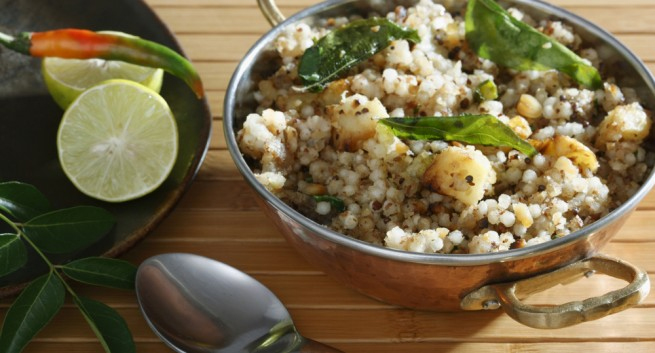The Hindu month of Shravan is when many people follow fasts on certain days like Mondays or eat only one meal for the entire month. There are also other days like the Chaturthi, Ekadashi, Poornima (full moon day) etc. when fasting is followed too. Why did this practice of fasting begin? What are the rules? Does it have any benefits – health and otherwise?
The spiritual reason
It is believed that fasting has been a part of Hinduism, which is a way of life, since the beginning. We, humans, spend a lot of time in planning, procuring, cooking and eating food which not only becomes an exhausting activity by itself, but it also takes away from what should be a spiritual way of life. Or so is the belief! So, certain days were followed as days of fast when one would abstain from eating or would eat limited, saatvik foods.
Hence, the food allowed on fasts were supposed to be those which are easy to procure throughout the year, like the tubers sweet potato, yam, tapioca, the millets like the Indian barnyard millet (samo/varai/bhagar/saamai), grains like amaranth (rajgira), dried fruits, water chestnuts etc. It was believed that when you don’t have to spend too much time in managing the food part of every day, you end up having more time to be close to the Almighty or the higher spiritual powers, and hence one would take up these fasts with joy.
The present reality
Unfortunately, over time, fasting has become more of a feasting where people indulge in deep fried starchy foods like potatoes, sabudana (sago palm starch pearls), sweets made using dairy products and heavy handed use of ghee. Also, often people forget the real purpose and goal of a fast eat simple foods (eg. Fruits), do not over eat, eat less at each meal or decrease the number of meals, cook food in a saatvik way (avoid deep frying, processed foods).
So instead of being able to derive any of the reported benefits of fasting like improved digestion, improved insulin levels, decreased body weight – one ends up actually feeling bloated and is unable to sleep at night due to the ‘upvaas’ feasting induced hyper- acidity.

How to derive health benefits from fasting?
- Take the focus away from food: Instead of planning a visit to a new upvaas food joint, eat a fruit and enjoy the light feeling tummy.
- Eat nutritious carbs: Stay away from starchy potatoes and sabudana and derive the nutritious benefits of foods like water chestnut, rajgira and varai.
- Follow the ancient Chinese rule of eating: Eat one morsel less than what makes you feel full. Do not overeat at any cost.
- Detox: Drink plenty of water and eat fresh fruits as that is what will keep you feeling energetic.
- Revive the Saatvik way: Use healthier cooking methods for making delicious upvaas food eg. Make sabudana appe instead of sabudana wada or a upvaasache thalipeeth made from upvaas bhajani instead of sabudana thalipeeth.
- No feasting after fasting: Once you are done with the fast, do not try to compensate for the imaginary loss of calories by bingeing the next day.
- Exercise, always: It would be useful to remember that a fast does not mean you are unwell, no need to use that as an excuse to not exercise every day.

